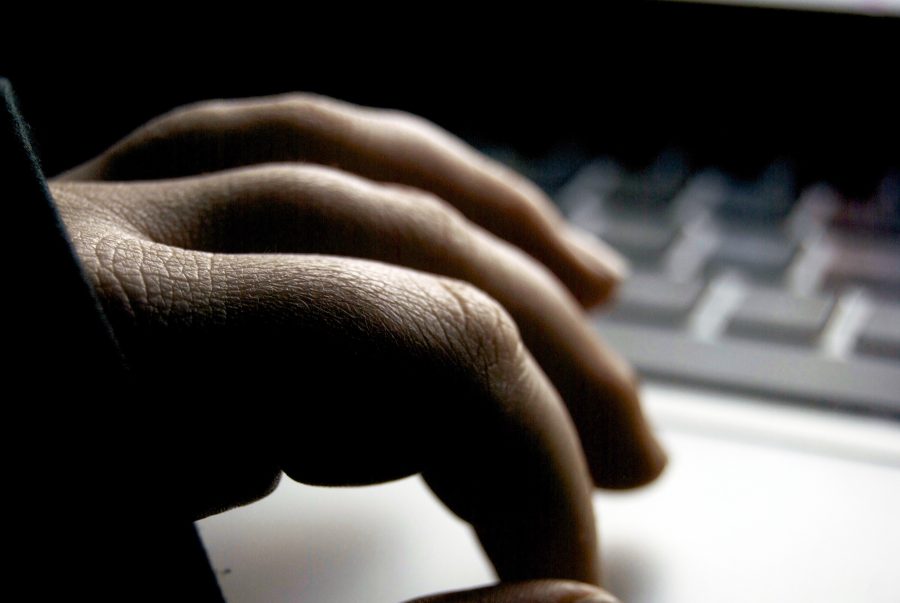Technology: Mental Vice or Social Virtue?
Social media has affected our lives in a number of ways.
Millennials are stereotypically characterized as technology-crazed teenagers who value likes and retweets more than they do face-to-face interaction. Although it’s obviously a negative generalization, there may be some truth behind this belief that many Generation Y, Generation X, Baby Boomers and beyond preach so zealously. According to a report by Common Sense Media, American teens spend an average of nine hours online each day, excluding time spent using technology in educational environments. With countless studies floating around pondering the psychological consequences of excessively using smartphones and social media, a question arises: is technology really bad for us?
Although Internet Addiction Disorder may not be an official, diagnosable illness, social media has certainly been found to breed tight attachments. CNN conducted a study called “#Being13: Inside the Secret World of Teens,” which sought to observe how 13-year-olds use social media, and how it affects their social psychological adjustment. They concluded that 61 percent of teens checked social media because they wanted to make sure their online posts were receiving likes and comments, 36 percent were curious as to whether or not their friends were excluding them from social outings, and 21 percent were worried that others were saying mean things about them.
“I think the reason that we are so dependent upon our smartphones and social media is the allure of attachment, and that this obsession stems from our human desire to be connected,” English teacher Mrs. Kelly Howsare said. “Restrict your use of social media to a half hour a day, and use it for friends or family that you don’t see everyday. Smartphones and social media are tools that should be our slaves; we should not be slaves to them.”
“Instant gratification is really what it is for teens, I think,” school nurse Mrs. Merrilyn Pysher said. “You can put something out there and immediately get all types of positive comments, sometimes negative comments, and any attention that you’re seeking.”
Social media users’ dependence on “instant gratification” is, according to some, the root of the issue. According to a 2012 study by researchers in the U.K., 53 percent of participants agreed that social media changed their behavior; 51 percent revealed social media proved detrimental to their self-confidence, as they tended to compare themselves to others. Additionally, a study by the University of Michigan found that more frequent Facebook users were generally unhappier and felt more dissatisfied with their lives than those who were offline more often.
Essena O’Neill, a 19-year-old Australian former Instagram model, chose to quit social media for good despite the fact that she had over 612,000 followers on Instagram. She felt it was “contrived perfection made to get attention,” and deleted over 2000 photos that “served no real purpose other than self-promotion.” All her remaining captions were edited to reveal the truth behind her purpose for posting the photo.
“Without realizing, I’ve spent [the] majority of my teenage life being addicted to social media, social approval, social status, and my physical appearance,” she said in an Instagram caption. “Social media, especially how I used it, isn’t real. It’s contrived images and edited clips ranked against each other. It’s a system based on social approval, likes, validation in views, [and] success in followers. It’s perfectly orchestrated, self-absorbed judgement. I was consumed by it.”
Despite social media’s potential to prevent self love and peace of mind, many believe that it can promote and strengthen global connections and the exchange of ideas.
“Online is a great place to express opinions and interests that would otherwise be ostracized in real life. Social media is also a great place to make friends who have the same interests as you more easily, especially if your interests are not particularly mainstream,” sophomore Will McGlone said. “Whenever you see a teenager looking down at their phone, they are reading and seeing different people’s viewpoints from around the world; whether you want to admit it or not, they are learning while doing this.”
Research recorded in the British Psychological Society claims that people who suffer from low self-esteem can utilize social media to connect and bond with others, thus promoting socialization and good psychological health. In this way, social media may be used to maintain and strengthen relationships, as it allows like-minded people to connect and share ideas practically instantly.
“I recommend that adults monitor what types of social media their children are looking at using. I know that kids wouldn’t agree with me, but I think that as you get older you become a better judge of what is a positive form of social media and what is a negative form,” Mrs. Pysher said. “I think if social media is used to keep in touch or to maintain relationships with friends and family, then that’s positive.”
Furthermore, research presented at the 119th annual American Psychological Association holds that shy teens may actually improve their socialization skills through social media. This may be due to the fact that people tend to feel more secure behind a screen. Dr. Larry D. Rosen, who presented this information, stated that teens are also improving their ability to empathize through the appropriate use of social media.
Therefore, social media can stimulate both negative consequences, such as the unhealthy dependence on instant gratification, and positive gains, such as more improved socialization and empathy abilities. The responsibility lies in utilizing social media appropriately, and knowing when enough is enough.

Senior Sarah Trebicka is a four-year staff reporter and former two-year Our World editor, now serving as editor-in-chief for the Spotlight. In addition...

Junior Maggie Moerder is a second-year photographer for The Spotlight. In addition to the Spotlight, Maggie participates in robotics and plays violin...


